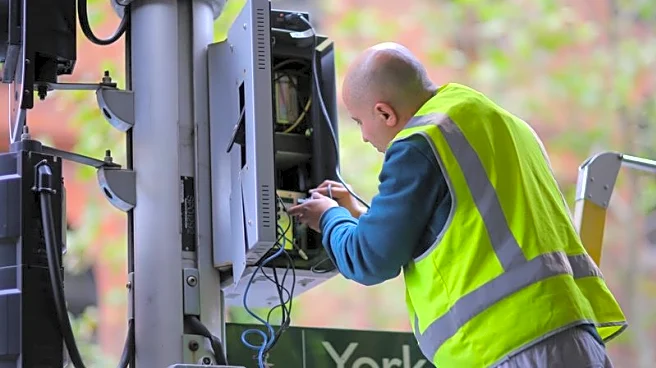What's Happening?
US Central Command has ordered Hamas to end its violent crackdown on civilians in Gaza following public executions. CENTCOM Commander Adm. Brad Cooper called for an immediate suspension of violence and adherence
to President Trump's peace plan, which demands disarmament. The executions occurred shortly after the peace plan was announced, with Hamas deploying thousands of fighters to maintain control. President Trump warned that force would be used if Hamas does not disarm, emphasizing the seriousness of the situation.
Why It's Important?
The violence in Gaza and refusal to disarm threaten the peace process and regional stability. The public executions highlight the challenges in enforcing peace agreements and protecting civilians. The situation impacts U.S. foreign policy and its role in mediating peace in the Middle East. The refusal to disarm could lead to further violence and undermine efforts for a peaceful resolution. Stakeholders, including Israel and the U.S., face difficulties in ensuring compliance from Hamas.
What's Next?
Continued diplomatic efforts are needed to persuade Hamas to comply with disarmament demands. The U.S. and Israel may need to consider alternative strategies or increased pressure to achieve the plan's objectives. Potential reactions from Hamas could include further resistance or negotiation for different terms. The international community may play a role in supporting the peace process and ensuring humanitarian aid reaches affected areas.
Beyond the Headlines
The situation raises ethical and legal questions about the enforcement of peace agreements and the use of force. The public executions highlight the complexities of negotiating with armed groups and the challenges of achieving lasting peace in conflict zones. Long-term implications could include shifts in regional alliances and the role of international mediators in conflict resolution.










